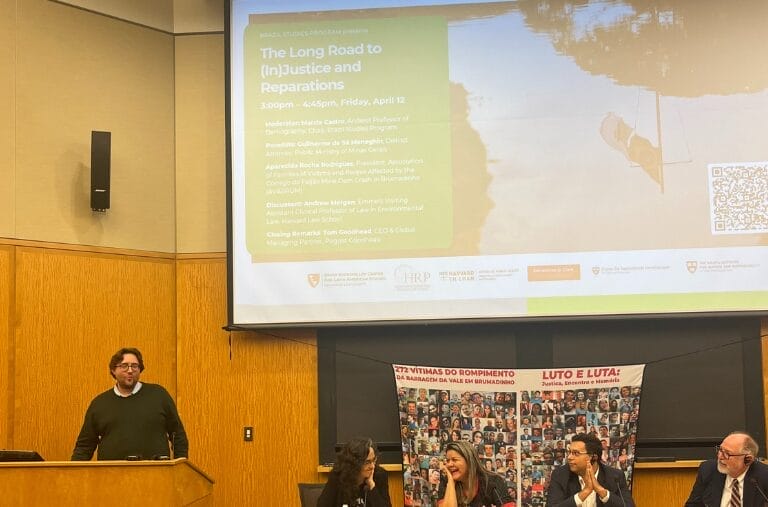Michigan has repealed a blanket immunity law for drugmakers. This law had hindered the rights of residents for decades, preventing them from addressing the conduct of pharmaceutical giants. Now cases, such as those filed by Pogust Goodhead, against pharmaceutical companies can be brought in Michigan.
The repeal of Section 5 of the Michigan Products Liability Act (MPLA) has significant implications. Pharmaceutical companies can no longer rely on their FDA approval as a ‘shield’ when residents pursue compensation for their injuries.
At Pogust Goodhead, our Mass Torts department focuses on representing individuals against pharmaceutical companies. We aim to address catastrophic injuries resulting from pharmaceutical drugs and devices.
The Michigan Product Liability Act
The initial signing of the MPLA into law occurred in 1996. The sweeping tort reform enacted by the Michigan Legislature was an attempt to make the state a ‘safe haven’ for the pharmaceutical industry. Unfortunately, it proved disastrous for Michigan’s citizens.
The MPLA has barred lawsuits brought by the state and its residents. This applies to any drug that is approved for safety and efficacy by the FDA and labeled in compliance with FDA standards. However, these FDA-approved drugs may still be unsafe and may not contain all the warnings and precautions that should be included to adequately warn a prescriber and patient about potential side effects.
No recourse for residents of Michigan
Over the past three decades, residents of the Wolverine State have had little to no recourse when injured by FDA approved pharmaceuticals. The FDA does not conduct its own independent testing of the pharmaceutical products, and instead relies upon the due diligence of the pharmaceutical company and their pre-market and post-market testing in order to evaluate the safety and efficacy of a product.
But pharmaceutical companies, like many of the other multi-national corporations we seek justice from, are primarily concerned with profit margins and stock prices. They prioritize profits over people. And they cannot be relied upon to appropriately regulate themselves. Lawsuits are often the only recourse that regular people harmed by their misconduct have access to.
The MPLA prevented Michiganders and the state attorney general from joining some of the largest litigations in the country. This includes litigation against Purdue Pharma and others over the opioid epidemic. Although these opioid products were FDA-approved, the pharmaceutical companies manufacturing and selling them did not warn about their addictive nature. As a result, Michigan lost the ability to obtain significant compensation for the state and its citizens who were catastrophically injured by FDA-approved drugs.
The MPLA section 5 previously stated:
“In a product liability action against a manufacturer or seller, a product that is a drug is not defective or unreasonably dangerous, and the manufacturer or seller is not liable, if the drug was approved for safety and efficacy by the United States food and drug administration, and the drug and its labeling were in compliance with the United States food and drug administration’s approval at the time the drug left the control of the manufacturer or seller. However, this subsection does not apply to a drug that is sold in the United States after the effective date of an order of the United States food and drug administration to remove the drug from the market or to withdraw its approval.”
Mich. Comp. Laws Ann. § 600.2946 (West)
Section 5 of the MPLA is now being formally repealed. This means pharmaceutical companies can no longer stand behind the ‘shield’ of their FDA approval when Michigan residents seek compensation for their injuries. Cases, such as those filed by Pogust Goodhead, against opioid manufacturers and sellers can now be brought in Michigan.
SB0410 – A path to justice
On June 27, 2023, Senator Jeff Irwin, who currently serves Michigan’s 15th Senate District, introduced SB0410. This Bill that would amend the MPLA to eliminate a provision of the Act that immunizes manufacturers and sellers from liability on any pharmaceuticals approved by the FDA.
Despite support from both sides of the aisle, there has been pushback from industry groups. They have warned of an ’onslaught’ of new litigation against pharmacists, doctors, and pharmaceutical companies. This ‘stampede for the courts’ rhetoric is an exaggeration by the pharmaceutical industry, attempting to shield themselves from all liability.
The amendment to the MPLA does not automatically guarantee that a pharmaceutical company is liable. The removal of immunity means that a plaintiff who has suffered an injury from an FDA approved drug is not automatically locked out of the courthouse.
The pharmaceutical industry’s attempt to portray doctors and pharmacists as the ultimate victims of the MPLA amendment is misleading. Civil litigation over pharmaceutical products almost always exclusively targets the manufacturers and sellers of the medical drug or device. In most instances, a plaintiff necessitates a prescribing physician’s cooperation in order to bring claims such as failure to warn. In what is known as the learned intermediary doctrine, a plaintiff must obtain some evidence that the prescribing doctor would have warned the patient about the potential adverse side effect if the doctor herself had also learned of the side effect from the pharmaceutical company.
Pharmaceutical manufacturers can now be held liable
On November 8, 2023, the Michigan House passed SB0410, and on December 7, 2023. Governor Gretchen Whitmer formally signed the bill, repealing the MPLA’s drug immunity law. Now that the ’FDA approved’ immunity language has been repealed, Michiganders can hold pharmaceutical manufacturers and distributors liable for injuries suffered as a result of their drug products.
If you or your loved ones were injured by a pharmaceutical drug or device while in the State of Michigan, please contact Pogust Goodhead’s Mass Torts department today. We offer a completely free and confidential consultation. You can email intake@pogustgoodhead.com or call us on (610) 941-4204.
Josh Neuman is licensed in the State of Michigan and is an experienced pharmaceutical drug and device attorney.









